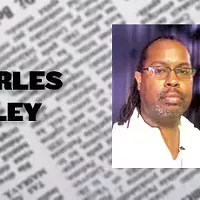Thursday, November 13, 2014
News / Opinion BREAKING NEWS: New civil war erupts in South Carolina!
Posted By Jerry Klein on Thu, Nov 13, 2014 at 12:15 PM
This just in: In a startling move guaranteed to relaunch the Civil War (oh, sorry, please forgive us, make that “The War Against Northern Aggression”), U.S. District Judge Richard Gergel of Charleston, South Carolina, ruled Wednesday that godless homosexuals have the same right as heterosexuals to ruin their lives in legally binding contracts called “marriages."
Thankfully, however, that decision was immediately put on a one-week hold as South Carolina’s Attorney General filed an appeal to the 4th U.S. Circuit Court of Appeals, even though that seems to be a lost cause, as the appeals court has ruled against those challenges in every other similar case so far. Still, residents of the state are counting on some illusive Higher Power to miraculously come to their assistance, insisting that the vote of a landslide majority of the people of the state banning gay marriages in 2006 should be the final answer on the issue.
In fact, that argument is essentially the same as one that is currently being made in North Carolina, and in most of the other 25 states where more than 40 federal court opinions have ruled against bans on same-sex marriages recently, in which the residents of those states insist that if a majority of the people of a state vote to ban something, that should end the discussion. As such, we here at Creative Loafing have taken it upon ourselves to research the issue in all its complexity, as a public service, in order to assist the general public in understanding the complexities of the situation. Here, then, is what we have determined after a truly exhausting examination:
Point 1: “If a majority of the voters in a state approve a ban on gay marriage, that should be the end of the discussion.” We have determined that this is illogical. Under this assertion, if the voters of a state decided that an African-American man and a white woman should not be allowed to marry, that ban should be allowed to stand. Clearly this is not acceptable in modern society, in that no group of people can be allowed to have the right to vote to deny any other group the exercise of their constitutional rights.
There you have it. That is the end of our time-consuming, incredibly draining assessment. Interestingly enough, this seems to be consistent with the ruling issued by Judge Gergel, who said, ”State laws that run contrary to constitutionally protected rights of individuals cannot be allowed to stand,” and “One’s right to life, liberty and property, to free speech, a free press, freedom of worship and assembly, and other fundamental rights may not be submitted to a vote.”
Of course, there is still the possibility that, one day, the issue of gay marriage will be heard by the U.S. Supreme Court, and we all know that in that case, all bets are off, given some of the incredibly befuddling decisions that have been handed down by a conservative majority there in the past few years (see: corporations are people). In the meantime, we’ll keep you advised should South Carolinians’ obsession with the right to bear arms happen to spill over to the issue of gay marriages.
Speaking of...
-

The big, gay awkward wedding
Apr 22, 2015 -

First Drip (3/17/15): Affordable housing coming to Cherry, the naked man, more
Mar 17, 2015 -

First Drip (2/26/15): Snow fail, Senate fail, more
Feb 26, 2015 - More »
Comments (2)
Showing 1-2 of 2
Latest in The CLog
More by Jerry Klein
-

Ruling Obamacare unconstitutional will cost lives
Apr 8, 2015 -

Religious fanaticism threatens future of humanity
Mar 10, 2015 -

Thom Tillis' dumb take on regulations, more
Feb 11, 2015 - More »







